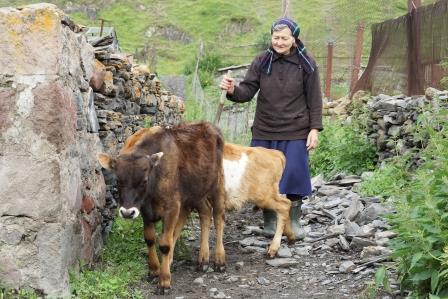Capacity development is fundamental to ensuring that countries across the UNECE region are well equipped to implement the internationally-agreed frameworks on ageing.
The capacity-building activities are designed to
- enhance knowledge about demographic change and its societal consequences
- assist countries to harness existing knowledge and skills to improve evidence-based policymaking
- foster the exchange of experience to allow countries to benefit from practices and lessons learned in other countries.

Road Maps for Mainstreaming Ageing
Road Maps provide a guide for countries to deliver on their commitment to implementing the Madrid International Plan of Action and its Regional Implementation Strategy (MIPAA and RIS).
They identify concrete actions relevant to the economic, social, cultural and political specificities of the country.
Road Maps are developed using a comprehensive participatory process: not only the Government but also civil society, academia, the private sector and of course older people themselves are consulted so that the recommendations made reflect the views of all sectors of society.
The following Road Maps for Mainstreaming Ageing have been developed to date:
- Kazakhstan (in preparation)
- Belarus (2019)
- Georgia (2015)
- Republic of Moldova (2012)
- Armenia (2011) / Armenia: Evaluation Report (2016)
Impact of COVID-19 on long-term care for older persons in Kazakhstan
UNECE Policy Seminars on Ageing
First introduced in November 2018, the policy seminars on ageing provide a dedicated space for in-depth discussion, experience exchange and learning in a policy area of interest to the implementation of the 2017 Lisbon Declaration. They are organized back-to-back with the annual meeting of the UNECE Working Group on Ageing.
Capacity-building workshops
UNECE organizes or co-organizes capacity-building workshops on various themes related to ageing.
- Quality in long term care (2022)
- Getting started with mainstreaming ageing (2021)
- How to draft your national report on the 4th cycle review and appraisal of MIPAA/RIS implementation (2021)
- Healthy and Active Ageing in a Sustainable World: Synergies between international initiatives on ageing (2021)
- Making participation meaningful: bringing governments and civil society together (2021)
- Towards a regional monitoring framework for ICPD beyond 2014 (2017)
- Second Workshop on addressing data gaps for active ageing indicators (2016)
- Addressing data gaps for active ageing indicators (2015)
- Community services for the elderly (2012)
- Community services for the elderly (2011)
- Ageing: A Challenge and an opportunity for the countries of Eastern Europe, Caucasus and Central Asia (2007)
INIA (International Institute on Ageing) - Malta
The United Nations Economic and Social Council, by its Resolution 1987/41, recommended to the United Nations Secretary-General the establishment of the International Institute on Ageing. On 9 October 1987, the United Nations signed an official agreement with the Government of Malta to establish the International Institute on Ageing as an autonomous body under the auspices of the United Nations. The Institute was inaugurated on 15 April 1988 by the United Nations Secretary-General, H.E. Mr. Javier Perez de Cuellar.
More information about INIA can be found on their website (external website).